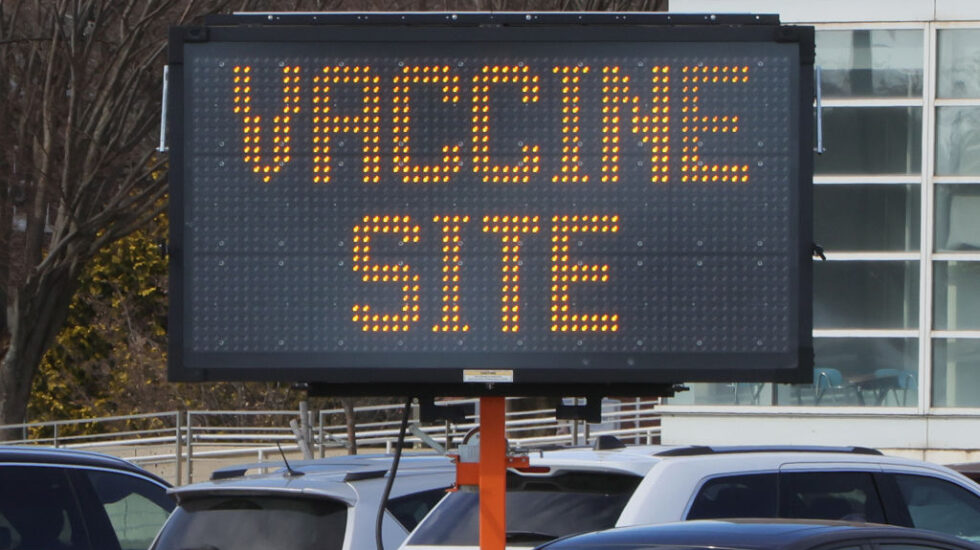More global COVID-19 infections were reported on Monday than at any other point during the pandemic, but new evidence suggests that vaccinated individuals – especially those who received booster shots – are unlikely to experience severe outcomes from the omicron variant.
Bloomberg reports:
The more than 1.44 million worldwide infections smashed the prior record after factoring out a day in December 2020 when Turkey backdated a significant number of cases. A more conservative gauge — the seven-day rolling average that smooths out one-time fluctuations and holiday reporting irregularities — is also at an all-time high, owing to a tidal wave of omicron infections.
That seven-day rolling average is up 49% from a month ago when the omicron variant was first detected, but The Washington Post highlights reasons for optimism:
Those infected by the omicron variant are 15 to 20 percent less likely to go to an emergency room, and 40 percent less likely to be hospitalized overnight, compared with those infected with delta, according to English data analyzed by scientists from Imperial College London. That aligns with early U.S. data from some hospitals.
At the Houston Methodist hospital system, about 15 percent of symptomatic individuals have ended up hospitalized — around a 70 percent reduction compared with those infected by the delta variant, said James Musser, chair of pathology and genomic medicine.
The fact that global deaths haven’t significantly increased even though omicron cases have risen is also promising.
“While deaths tend to lag infection rates by a few weeks,” reports Bloomberg, “early indications from southern Africa and other locations where omicron has been circulating suggest some decoupling of the measures.”
Michael Osterholm, director of the Center for Infectious Disease Research and Policy at the University of Minnesota, told The Post that there are many factors that impact how a person reacts to omicron.
“Have you previously had infection? Were you vaccinated? How many doses of vaccine, and was it more than six months ago? So in some ways this is almost like a calculus problem. It’s got a lot of moving parts to it and we’re trying to figure it out,” Osterholm said.
The Post adds:
The welcome news for most people who are vaccinated and boosted is that omicron infections often mimic the symptoms of the common cold. Those with two shots of vaccine, but no booster, also appear to fare relatively well, though they may develop more intense symptoms that may last longer, experts said.
While omicron may not be as severe as previous strains of the virus, its increased transmissibility will likely continue to drive up case numbers.
“If even a small fraction of those land in the hospital,” The Post reports, “[doctors] worry that health care systems that are already short-staffed because of delta infections could be overwhelmed — with potentially dire results for those needing critical care as a result of car accidents, heart attacks, strokes, or any number of things that bring people to emergency rooms.”
“We’re going to have a real challenge to the health-care delivery system — namely the number of beds, the number of ICU beds and even the number of health care providers,” Fauci said in an interview with The Post. “Even vaccinated people are getting breakthrough infections. So if you get enough nurses and doctors infected, they are going to temporarily be out of action. And if you get enough of them out of action, you could have a double stress on the health care system.”



